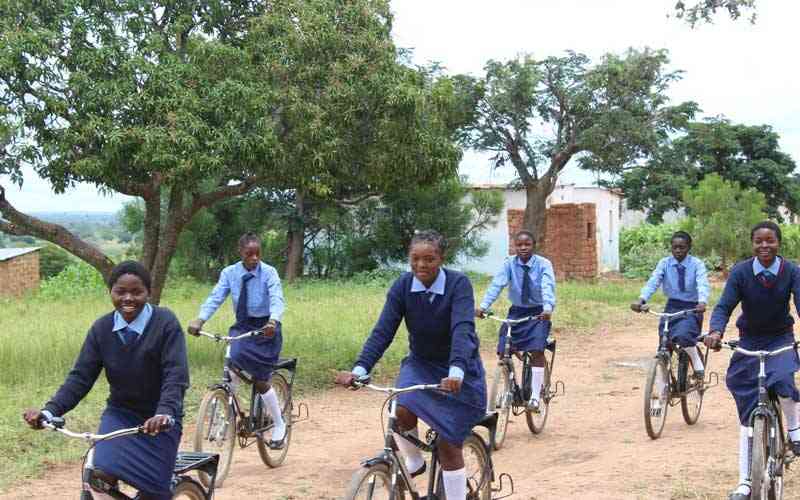
Students who walk long distances through wildlife corridors in Zimbabwe to get to school will be able to do so more safely thanks to the donation of 90 bicycles.
Riding for Conservation and Education, a joint initiative between the International Fund for Animal Welfare (IFAW) and the Zimbabwe Parks and Wildlife Management Authority (ZimParks), aims to break the poverty cycle while fostering positive attitudes towards wildlife.
Most students traverse wildlife corridors on their way to and from school, exposing them to the risk of being attacked by elephants, lions and other wildlife.
To mitigate that risk, 90 bicycles were today delivered to less privileged students attending schools in buffer communities around Hwange National Park.
Hwange NP is part of the Hwange-Matetsi-Zambezi landscape where IFAW implements its Room to Roam initiative, to secure and connect habitats for elephants and other wildlife. It supports local communities to develop strategies for them to live successfully with wildlife.
The bikes are supplied as part of a wider Environmental Stewards Programme being implemented in these schools, aims to improve access to education and help mitigate human-wildlife conflict.
“Based on our experience, conservation efforts work better when local communities are actively engaged and when their expectations and desires are not ignored.
“Through this intervention, we hope to create a peaceful coexistence between people and wildlife and, most importantly, make a lasting impact in the lives of these children who will become future conservation champions,” said Fulton Mangwanya, ZimParks director general.
“Education plays a pivotal role in breaking the poverty cycle and in fostering positive attitudes towards wildlife,” says IFAW landscape conservation director, Phillip Kuvawoga.
"Children are the wildlife heroes of the future. By investing in their education now we hope to create a better future for communities and the wildlife that live amongst them, one ride at a time.”
In addition to the bicycles, IFAW and ZimParks also handed over 500 textbooks to 10 schools from the Hwange and Tshlolotshlo districts.
About 1,600 students will benefit, which will also improve the textbook-to-student ratio, which currently stands at 1:5.
The Environmental Stewardship Programme (ESP) supports 21 primary schools located in the buffer communities of Hwange, Lupane, and Tsholotsho districts since its inception in 2019.
The IFAW and ZimParks initiative seeks to develop and instill conservation and sustainable practices, values, and principles in children aged eight– 15 years. – IFAW









